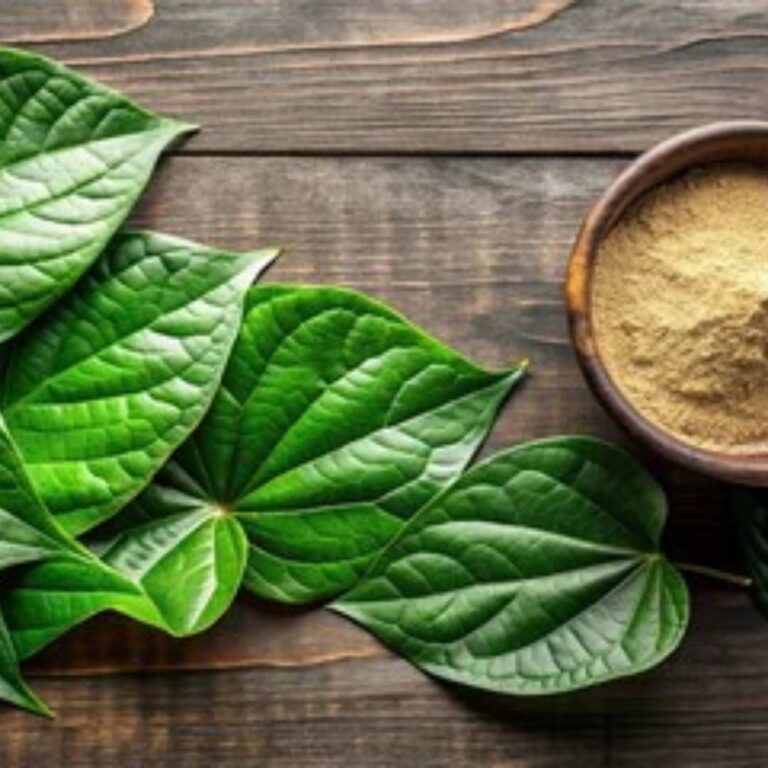People on Subreddits and various online forums commonly discuss the combination of kratom and magnesium.
Experts believe that consuming the kratom and magnesium combination helps decrease kratom tolerance and intensity by binding to particular receptors.
The concept behind this theory may contain accurate information, but is it practical?
We will provide a complete analysis of how magnesium functions to enhance kratom effects and what important information people need to understand regarding this combination.
What Is Kratom?
The tree species Mitragyna speciosa produces leaves that contain alkaloid compounds, including important substances mitragynine and 7-hydroxymitragynine.
Based on the dosage and strain choice, the brain’s opioid receptors receive compounds that result in either stimulating or sedating outcomes. People normally use Kratom in powder, capsules, and teas together with extract forms.
The legal status of kratom in the United States brings controversy across the country because of unknown safety risks, a dependency risk, and the lack of federal regulatory oversight by the U.S. Food and Drug Administration (FDA).
What Is Magnesium?
Our body systems depend on magnesium as an essential mineral because it supports muscle and nerve operations, together with blood sugar control, and helps maintain healthy bones.
This essential mineral occurs naturally in green leafy vegetables, along with nuts and seeds, and whole grains and supplements are also available for dietary use.
People commonly use magnesium because it provides calming effects, which help manage muscle cramps while enhancing sleep quality.
The body uses magnesium to participate in more than 300 biochemical reactions, which makes it essential for maintaining good health.
What is Potentiation?
The term potentiation represents an advanced way to talk about increasing effectiveness because it refers to active ingredient-strengthening techniques as well as absorption boosting methods and duration extension within brain and body tissues.
One illustration demonstrating this effect involves curcumin supplementation, where this active turmeric agent functions as the main compound found in turmeric spice.
Black pepper extract combined with curcumin intake increases the availability and effectiveness of curcumin through the influence of its active component, piperine, on bioavailability.
How Does Magnesium Potentiate Kratom?
Magnesium-based Kratom potentiation emerged because of its known effect on physiological functions, which enhance Kratom effects. Here’s how magnesium may work as a potentiator:
1. NMDA Receptor Antagonism
The brain receptors known as NMDA receptors experience blocking activity from magnesium because the substance behaves as an antagonist to these receptors.
The pain removal properties of kratom may become more effective when NMDA receptors are blocked because they play a role in pain perception and tolerance.
2. Reduced Tolerance
Some kratom consumers claim that magnesium helps them maintain their desired effects through decreased kratom requirements. The effect of magnesium becomes valuable for users who have used kratom extensively because it helps them minimize their dosage requirements.
3. Muscle Relaxation
Magnesium serves as an ideal muscle relaxant for kratom users who want to ease tensions and reduce cramps in their bodies.
4. Improved Absorption
Magnesium enhances kratom alkaloid absorption, including the major alkaloid mitragynine, by maintaining digestive health as well as healthy gastrointestinal functioning.
Benefits of Combining Kratom and Magnesium
Combining kratom and magnesium may offer several potential benefits, including:
1. Enhanced Pain Relief
The blocking of NMDA receptors through magnesium enhances kratom’s pain-killing properties, thus creating a potent treatment for those with persistent pain conditions.
2. Reduced Tolerance
The regular use of magnesium helps kratom users lower their required dosages because it decreases tolerance buildup.
3. Improved Relaxation
When combined with magnesium, the relaxation aspects of kratom become enhanced through its calming properties, which creates a suitable option for individuals experiencing stress or seeking restful sleep.
4. Balanced Effects
The co-administration of kratom with magnesium produces beneficial effects while lowering the potential negative side effects.
Different Types of Magnesium
There are several types of magnesium, some with unique features and pros and cons. These are given below:
1. Magnesium Glycinate
- Bioavailability: High.
- Benefits: Gentle on the stomach, contains calming effects.
- Best For: Preferred for those who need to avoid gastrointestinal distress from other types.
2. Magnesium L-Threonate
- Bioavailability: High.
- Benefits: It may cross the blood-brain barrier, potentially enhancing cognitive function.
- Best For: More expensive and best for those looking for potential cognitive enhancements
3. Magnesium Citrate
- Bioavailability: Medium to High.
- Benefits: Good bioavailability and has a laxative effect.
- Best For: An Affordable and widely available form that has high laxative properties.
4. Magnesium Oxide
- Bioavailability: Low.
- Benefits: Least bioavailable; high laxative properties.
- Best For: Mainly used for high laxative properties.
Users of magnesium kratom prefer compounds that demonstrate high bioavailability among M. L-Threonate and M. Glycinate.
Potential benefits for kratom potentiation and tolerance could be achieved through these two magnesium types since stomach absorption appears more efficient than unoptimized magnesium forms.
M. Glycinate has been suggested to have additional calming effects due to its binding with the amino acid glycine. M. L-Threonate has been suggested to have cognitive benefits.
While the potential effects of both these types might not directly act as potentiators, it has been suggested that they might offer some synergy with kratom’s effects.
Potential Risks and Side Effects
While combining kratom and magnesium is generally considered safe, there are some potential risks and side effects to be aware of:
1. Digestive Issues
The digestive system can produce diarrhea or stomach cramps when users consume large amounts of magnesium citrate, particularly.
2. Drowsiness
When used together, kratom and magnesium create a sense of tranquility that potentially results in sleepiness or fatigue.
Wait until you determine your combined response to avoid using heavy equipment or driving.
3. Overconsumption
Excessive consumption of magnesium leads to toxicity because it creates several unwanted symptoms, including nausea together with vomiting, and abnormal heartbeats.
Following the prescribed dosage directive, you should discuss your health concerns about this combination with your healthcare provider before proceeding.
4. Interactions with Medications
The interaction between magnesium and several medications, including antibiotics, leads to drug interactions with blood pressure drugs.
Before adding calcium to your medication plan, you should consult your healthcare provider regarding compatibility with kratom and your other treatments.
Dosage & Timing of Magnesium with Kratom
Scientific evidence regarding magnesium and kratom usage comes solely from personal reports, even though research has not been done, so their combination should be avoided.
People who use kratom recommend initiating your dosage at the lowest possible level to determine kratom effect changes following magnesium consumption.
Clinical research suggests that magnesium should be taken before kratom intake to establish the inhibition of NMDA receptors, which happens before kratom consumption occurs.
Multiple kratom users attempted consuming magnesium simultaneously with their kratom dose without facing any negative side effects, but research, as noted earlier, fails to validate this information.
Safety and Interactions
Studies about kratom and its mixture with all substances, including magnesium, are insufficient, so any combination should be completely avoided. Magnesium exerts influence on the absorption speeds of substances that stomach acid can break down.
Users must beware that kratom usage carries risks of certain side effects that can become worse when mixing kratom with natural supplements.
Prior consent is essential before the combined use of kratom with magnesium, and especially necessary for individuals with medical conditions who are already taking medications.
When deciding on using the combination under medical supervision, you should administer doses separately throughout the day.
Final Thoughts
Magnesium functions effectively as a kratom potentiator to deliver stronger pain mitigation together with lower tolerance, and superior relaxation properties.
Magnesium shows potential benefits, but users need to handle it appropriately and should grasp its associated side effects.
Your healthcare provider should review all plans to combine magnesium supplements with kratom because they must evaluate the situation based on existing medical conditions and medications.
Begin with minimal magnesium intake when combining the substance with kratom, and enhance the dosage gradually based on your individual needs.
The combination of magnesium with Kratom has potential benefits for your daily Kratom practice because it brings calming effects and may enhance its results.
More Readings For You:





